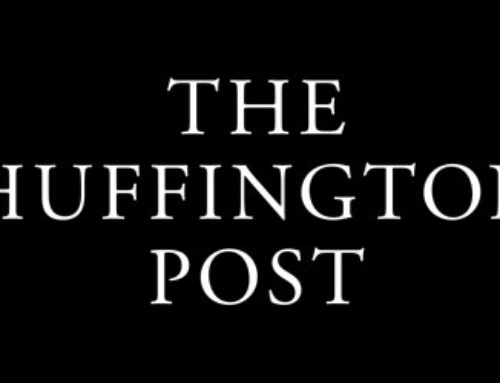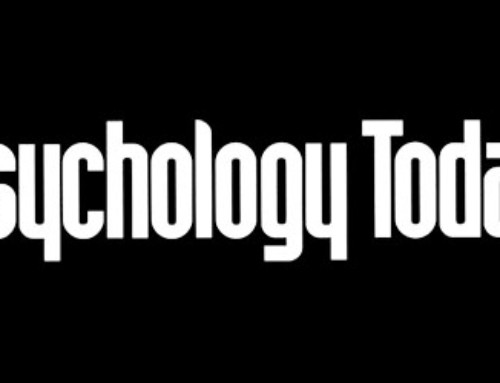Jon Ramer is a software entrepreneur turned social engineer, a civic leader, a community organizer, an inventor, and a musician. He is the designer and co-founder of several Deep Social Networks, including the Ideal Network. He was an organizational participant in Seeds of Compassion, an event in Seattle coordinated around the His Holiness the Dalai Lama’s 2008 visit to Seattle which focused on nurturing compassion throughout the world. Following the Seeds of Compassion, Ramer co-founded the Compassionate Action Network. Through the work of the Compassionate Action Network, Seattle became the first city in the world to affirm Karen Armstrong’s Charter for Compassion. In his initial role as Executive Director he conceived and launched the Ten Year Campaign for Compassionate Cities, which has spread to over 85 cities worldwide. He is also a songwriter and lead guitarist for the band Once And For All.
What are Deep Social Networks and how do they work?
Deep Social Networks came out of my partnership with Chief Phil Lane Jr., and the guiding principles he put forth. I’ve been building social networks before the current trend of online social networks, and I realized you need principles to guide how you behave in these networks. A community operating system, if you will. So that was the basis of our partnership. Chief Phil Lane Jr. didn’t have an online presence when we met, and now he has a website and a Facebook page. You can find his page Walking the Red Road on Facebook.
A lot of your work is about community and collaboration. Where does this interest come from?
Some things you just can’t do alone, you can only do together. I’m a musician, and what really inspires me is when musicians start playing instruments at the same time…and then it transitions into the magic moment when it becomes music. Playing instruments at the same time doesn’t mean you’re making music. When you make music there’s a sense of something greater happening than any one of us. And that is what’s inspired me and has been my touchstone for what I’m trying to do with community.
Language has the power to conceal and reveal, and I doubt we understand each other most of the time. This is why it’s hard to build community. In discussions, people have strongly held views, and we brush up against deep hurts. It’s messy working out everyone’s interests and needs.
Alignment isn’t the same as agreement, so you can get people who don’t agree to work together, if it’s based on respect. I’m a pluralist. I think pluralism is the best shot we have. There isn’t one right way, and there can be many right ways.
Ideally, if we could dynamically blend and get along in society things would improve. Out of the Occupy Movement came the use of collective thinking. People literally came to the table with the idea of not expecting to speak with the preconceived ideas they came with. They let go of the ideas they had, and co-created and constructed something new. I think we need more of that kind of radical innovation, and ways of getting out of what we already know.
Look at the type of behavior that got us here. Things won’t be different unless we live and think differently. Really, it would be so much better if we could all just sing together as a form of communication. If could sing our way into a new world I’d have a lot more faith we’d get there, rather than trying to talk it out.
Tell me about the Ten Year Campaign for Compassionate Cities. What can individuals do to get involved?
In 2010 I realized in ten years time we’ll be at 2020. We need a good vision. Since 2020 holds the vision of perfect vision. And it would be a vision that would transcend any elected official. So the next mayor, like it or not inherits this proclamation of compassion…so we had the city issue a joint proclamation. We’ve laid it out so Compassionate Seattle centers around community service, and we’ve built a heart map to help guide people. It’s an evolving, ongoing work of art.
How do we build on our strengths? Support organizations with engaged volunteers. A lot of people want to volunteer, but they just don’t know how to begin. The Compassion Games is one way we’re activating the will to get involved. There’s sharing stories about compassion in action in Seattle.
We’re working with a group called What’s Good 206. It’s Seattle’s youth media source, which is focused on telling stories about what other young people are doing to positively impact the world. It’s a beautiful example of what’s possible.
Here’s one quick example: during The Compassion Games, a student at the University of Washington started Operation Compassion. Last November, he was on a bus and a homeless man came on the bus. So the student did what a lot of people do. He put his ear buds in and tried to be invisible. The guy came over and asked him for some money, and the student said he didn’t have any change. But then he got to thinking. So he went up to the homeless man and said he did have some change, but asked what the guy would do with the money. The homeless guy’s name was Reggie. Reggie asked him if he was a cop and he said no. And Reggie told him exactly what he did with the money. He gave it to homeless youth. The student wasn’t sure about Reggie’s story, so he got off the bus and followed him. Reggie went into a house and he waited for Reggie to leave, and he went inside and saw it was a shelter. He asked the woman at the desk if she knew Reggie. She pointed to Reggie’s picture on the wall, and said, “He’s our most frequent donor.” I love that. You never know if the guy asking for money on the street is collecting money to help homeless youth. And maybe we shouldn’t be so quick to write people off.
Positive character traits such as caring and respect need to be reinforced. Maybe these subjects need to be taught in public schools, alongside regular subjects.
We’ve developed a Compassion Curriculum. Before we started this interview I was raving to you about We Day. This is exactly what we need. An organization that inspires young people to get involved. On March 27, 2013 at Key Arena at least 15,000 young people are going to come together for an event, which is essentially a celebration of doing good works in the world. You can’t buy tickets to this event. You earn your way in through a global action or a local action.
I think kids are so much wiser in ways we’ve forgotten. They know how we treat others is vitally important. As we get older we get more jaded. That’s got to change.
There’s a genius educator in Seattle who runs The Puget Sound Community School, and he’s been teaching kindness for years. He takes kids out and they perform random acts of kindness. For example, they go to the library and randomly put positive messages in books. And the kids love this idea, and no doubt, it gets them to thinking along these lines. He leads by example, and hopes other academics will follow. It’s about character building and kids finding out more about positive actions and compassion.
There are numerous ongoing wars in the world, and escalating gun violence in our culture. How do people stay optimistic in the face of this?
Yeah, it’s hard. So much of this is fear-based. Fundamentalism has become a huge problem. People always thinking they are right, and they have the right of way. When fundamentally, fundamentalism is often an excuse for intolerance. And that kind of intolerance we can no longer tolerate.
I consider myself a realistic optimist. I’ve been with people who feel they just can’t continue. And, unfortunately we have the horrific reality of people who want to blow themselves and their intended targets up. Because they strongly feel their cause is just and right. They believe they are on a mission for their god. Theology informs them they’ll have some type of life in the afterlife, so they’re willing to wreak havoc and kill people in the process.
The thing our society needs is greater depth of thought, like taking a deep breath more often. Deep Social Networks are about creating authentic, trusting relationships. Creating trust in order to produce real results.
Sometimes it’s hard to stay optimistic, but the good news is the Internet is offering us a view of what’s right going on in the world. We need to amplify the stories of compassion, and just not give up.
It seems without taking steps toward creating the type of culture where compassion is at least in people’s thoughts and then acted upon, we are heading down a road to a culture where people will feel less empowered to change the world for the better. How do more people plant seeds of compassion?
If you ask yourself the big questions, what am I here for, does life have a purpose…the truth is I don’t know. But I’m unwilling to live my life and find out that I might’ve made a difference if I behaved as if what I did would make a difference.
So, I’m choosing, in the face of not knowing, to live my life as if every moment really does matter. And the way we treat each other really does matter. I have the benefit of a culture that teaches that. But I think if you get underneath all the cultures of the world there’s a common thread that recognizes how life is a mystery.
We need to do better, and we all can contribute to the betterment of the world. I know I’m considered a socialist by some. If Obama’s a socialist I can’t imagine what I am. In reality, we all do better when each of us gets the support of each other. Sharing and caring are good qualities to develop in ourselves, and to instill in the next generation. And those qualities should be promoted as virtues again. I don’t know when greed became a virtue.
Short-term self-interest is killing us. So we want to amplify the stories of people willing to sacrifice a little bit for others. We need more positive stories, more commitment and involvement. And it’s there, just waiting to be tapped into.





